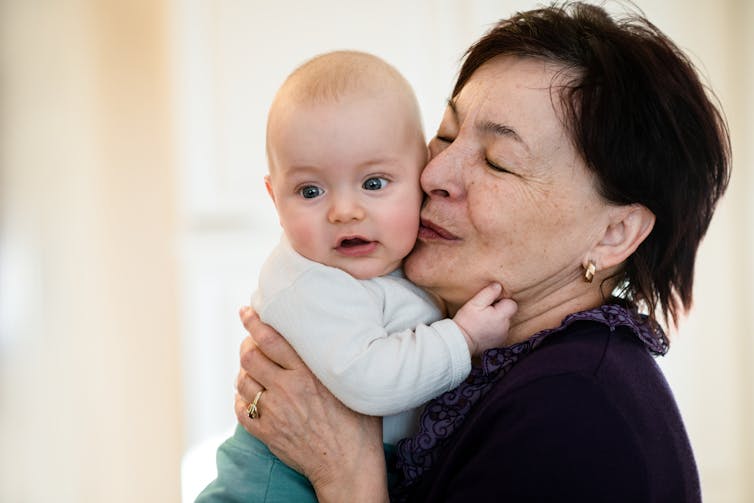The number of babies born in England and Wales in 2022 fell by 3.1% compared to the previous year. The average age of parents is also at a record high, as people choose to delay having children. The average age of mothers is now nearly 31.
To some, this is alarming. MP Miriam Cates, for example, has written that “the economic consequences of this shift are mind blowing”.
Worries about a low birthrate often include that there won’t be enough young people to support an ageing population through pensions and social care, or that a population decline will affect the economy. Some worry that a falling population will lead to higher immigration, and present this as something to be avoided by increasing the birth rate.
But the population of the UK is rising, as is the world’s population, and they will probably both continue to rise for years to come.
Everyone has the right to decide when and if they want children. Policies should enable free and informed choices. But individuals shouldn’t be responsible for controlling a country’s future population and economic prospects through childbearing.
Instead of targeting specific birth numbers, we should focus on supporting parents and planning for future population changes.
Long-term trends
The figure of 2.1 children is often given as the average number of children required in order for a population to replace itself over the long term. In fact, fertility rates in England and Wales have not been that high since 1972 – more than 50 years ago – and yet the population has not decreased.
The birth rates in the UK are similar to long-term trends experienced by many places in the world. In Europe, the highest fertility rate according to 2021 data is 1.84 in France. In England and Wales the average is 1.61, which is actually higher than the EU average of 1.53.
Within this context it is clear that current birth rates, while low, are not wildly out of the ordinary. And in fact, projections suggest an extra 6.6 million people will be living in the UK by 2036.
But it’s important to note that this is a projection based on assumptions about future births, deaths and migration. Projections are not predictions – and migration is particularly hard to predict given how much it depends upon changing policies.
The role of immigration
The growth in the UK’s population will be driven largely by immigration, as it has been since the 1990s. Immigration has played a hugely important role in sustaining the UK’s population, economic growth, and workforce. Some people are concerned that immigration contributes to housing shortages and puts pressure on public services.
But evidence suggests that there is no direct relationship between international migration and housing demand. And while it is hard to estimate the impact of migrants on the economy, we do know that migrants pay more in income tax and national insurance than they claim in tax credits and child benefits; many migrants are not actually eligible to claim public funds due to their immigration status.
Dismissing immigrants erroneously places more value on the lives of those who are born in the UK, despite the fact that one in four people in England and Wales do not classify themselves as “white British”. Survey data also suggests that public attitudes to immigration have become much more positive in recent years.
In addition, many fears about a falling birth rate concern its impact on an ageing population and the economy. The foundation of our pensions and social support system is that a society needs enough people of working age to support the needs of those who are too old (or too young) to work.

Martin Novak/Shutterstock
In the UK, most “baby boomers” – the people born in a post-war peak in the birth rate – have reached pension age, requiring more working people to support them.
Higher fertility rates might be a long-term solution to this issue, but it takes a very long time for babies to reach working age, and in the meantime they require a great deal of social support in the form of childcare, healthcare and education. An increase in the fertility rate today would not have much impact on the working age population for at least 20 years.
Returning to work
Labour shortages are not always a result of a lack of births, either. Indeed, the prohibitive cost of childcare means that many parents, especially women, struggle to return to work after having children or do not return in their full capacity.
Over 1.5 million people are economically inactive, 85% of them women, because they are looking after family. This means that having more babies might even exacerbate labour shortages, or lead to people with important skills not making use of them in the workforce.
It is notoriously hard, not to mention ethically problematic, to change fertility rates through direct government policy. And, importantly, the ability to decide if, when and how often to have children is a fundamental human right.
Instead, policies should focus on supporting children and families. The demographic future is not easy to manipulate, so we must plan for it rather than attempt to tinker with fertility rates.
